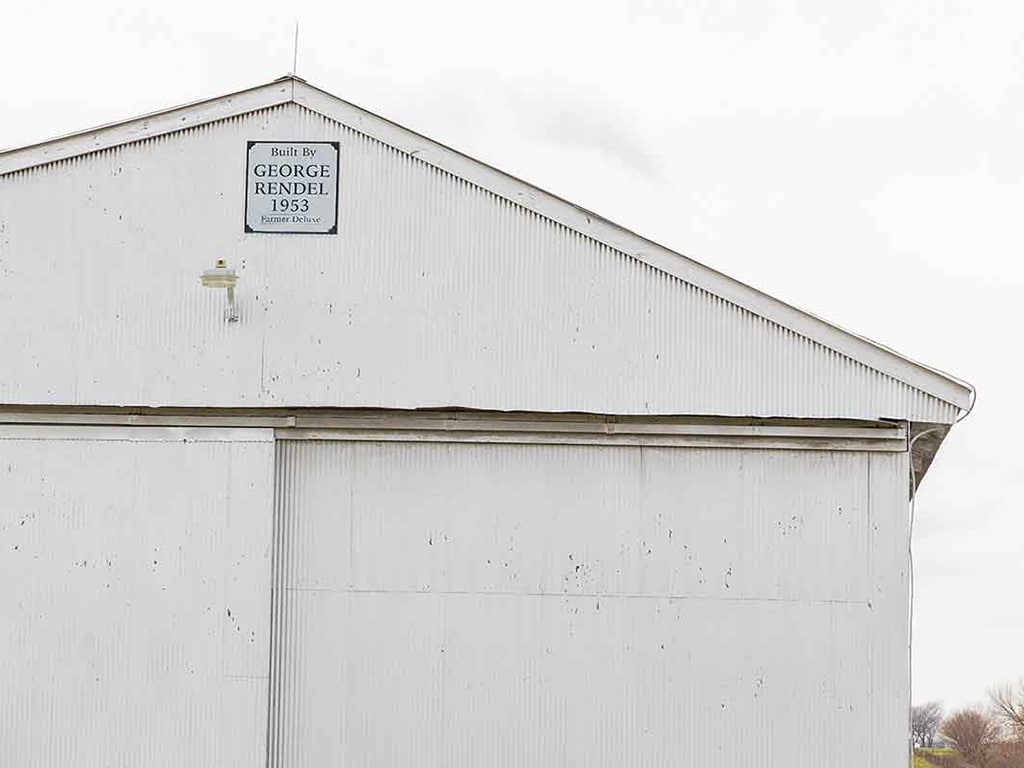Agriculture, Farm Operation September 01, 2023
Test Results
.
Relentless pursuit of knowledge fuels Rendel Farms.
In a field of lush, green winter wheat peppered with orange flags, Zack Rendel carefully examines the root system of the cereal crop. The flags are part of a fertility study Oklahoma State University (OSU) has developed with Rendel Farms just east of Miami, Oklahoma.
Zack, the sixth generation to operate this farm in northeast Oklahoma, says collaboration with OSU is part of the farm's culture to constantly learn, evaluate and become more efficient.
"We look at doing all kinds of new things," says Rendel, who farms with his uncle, Brent. "In 2022, we had nearly 17 different biologicals we tested in on-farm research."
The inquisitiveness comes naturally. Zack's grandfather, Mark Rendel, tested all kinds of farm strategies, from different crops, to alternative practices. "He always had little plots here and there," Zack recalls.
The soils in Ottawa County, Oklahoma, tend to be tight and have poor drainage, says Brian Arnall, OSU's precision nutrient management specialist. They are unique soils to the area, which make the collaborative effort all the more valuable for area farmers, Arnall says. Whether it's nutrient management trials or new crops, the Rendels are at the forefront of new practices.
The Rendels have tried sesame, canola, soft wheat, and bedding corn on poorly drained soils.
"They aren't afraid to be inventive, and they're not afraid to adapt. If a practice works, or even kind of works, they'll adapt it to fit their needs," Arnall explains.
Brent Rendel is a longtime member of the Kansas Ag Research and Technology Association, a grassroots organization of farmers dedicated to on-farm research and adoption of new technologies. Zack is following in his footsteps.
"Zack is crazy inquisitive," Arnall says. "He's always sending me stuff he's trying. And he's not afraid to try new things."
It's part of the family DNA. Members of the Rendel family tree include blacksmiths, inventors, and engineers. But they all loved to farm. The current generations of Rendels combine that love of learning with today's technology to make it happen.
Above. Miami, Oklahoma, farmer Zack Rendel cooperates with university programs to get up-to-date research data. Ingenuity and curiosity have fueled six generations of the Rendel family. Zack Rendel relishes sharing the family history. Zack Rendel is the sixth generation to operate Rendel Farms. Son Nate is well on his way to being the seventh. Zack and his wife, Kristi, also have a daughter, Charlie.
On-farm testing. Obtaining usable information requires planning, effort, and discipline. But on-farm testing isn't difficult, Zack says.
"The easiest thing you can do is strip tests, which we call side-by-sides, in large blocks on fields," he says. The Rendels use John Deere's Operations Center management platform to write prescriptions, such as multiple fertilizer rates in wide strips on fields.
"One area of farming that has changed completely in the last thirty to fifty years is nitrogen rate. Is one pound per acre really economical? Or do things need to change?" Rendel says. "We know sulfur needs to change."
Their test plots are replicated, often in a checkerboard pattern to account for different soil types and elevation. Results can be measured with a yield monitor at harvest, he adds, and they often beg the questions: what if this variable was tweaked a little, or that variable was tweaked a lot?
Hence, the hard look at biological products.
"If I did all these things manufacturers tell me, add five or 10 bushels per acre, we'd have 250-bushel corn every year," he says. "I may see a difference in year one, but you've got to test it three, five or seven years to really see a difference."
Taking advantage. The Rendels just added more grain storage, part of which will hold non-genetically modified (GM) corn.
Through plotwork, they have discovered GM-free delivers more profit per acre than traited seed.
"Conventional corn seed is $100 per bag cheaper, and that's money back to us. We don't have corn rootworm problems and through our on-farm testing program, I have side-by-side data that shows the non-GM hybrid yields exactly the same. As long as you have a good herbicide program, I can grow conventional corn just fine," Zack explains.
The local premium for non-GMO corn is 75 cents per bushel. "That's 75 cents more than I was getting from the local elevator," he adds. "That adds up."
Adding value to commodity crops is a niche the Rendels can fit, he adds.
"We can segregate grain, and we can identity preserve all the way to the spot I put the seed in the ground," he says. "I think that's where the money will be in the future." ‡
Read More

SPECIALTY / NICHE
Flowers with Flair
This duo uses flowers to bring smiles to customers.

AGRICULTURE, LIVESTOCK/POULTRY
Tiny Cows, Big Business
Mini cows can be a commercial success.




